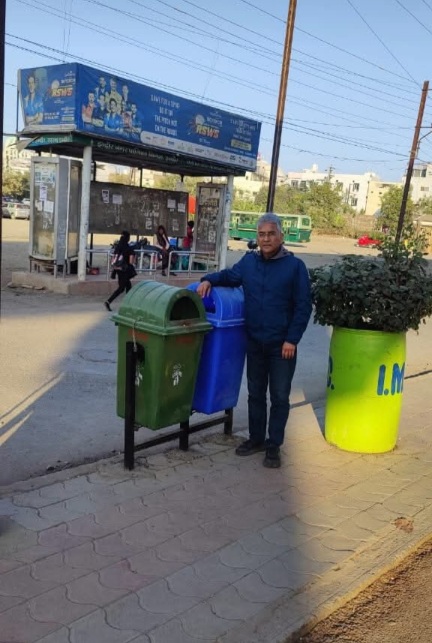Can Uttarakhand’s and Himachal's Leaders Learn from Indore’s Cleanliness Model?
Indore | Special Report
Standing in the cleanest city of India, Indore, it’s hard not to feel a sense of pride—and frustration. As I made my way from the airport to my hotel, I had an insightful conversation with my cab driver, Mohit, a 32-year-old resident of Indore. Mohit spoke passionately about the city’s remarkable transformation in waste management, a journey that has set a national benchmark.
At home, Mohit follows a strict waste segregation routine, with four separate bins for wet, dry, and other types of waste. Indore’s municipal system, he explained, has an army of sanitation officers—called darogas—who ensure that waste is collected and processed efficiently. Any lapse, and the daroga in charge is suspended without delay.
Beyond household waste, Indore has also tackled a major urban menace: Construction and Demolition (C&D) waste. Despite ongoing metro construction, not a single street is littered with debris. The administration is vigilant, ensuring that construction waste is properly managed and does not clog the city’s roads or drains.
Mohit summed up the city’s philosophy well: cleanliness isn’t just about hygiene—it’s about economic growth and investment. A clean city attracts businesses and improves the quality of life for residents.
Uttarakhand’s Waste Crisis: A Stark Contrast
Hearing Mohit’s words, my thoughts drifted to Uttarakhand, where cities like Dehradun continue to struggle under mounting garbage. The starkest contrast is that, while Indore treats cleanliness as a civic mission, Uttarakhand’s leaders seem content with cosmetic fixes.
Consider the 2023 Investors Summit in Dehradun—crores were spent on painting walls, yet waste management remained an afterthought. The same story played out during the National Games, where officials focused on PR rather than addressing the city's filth.
What Stops Uttarakhand from Learning?
I think Uttarakhand’s leadership has failed to recognize waste management as a governance priority.
"Indore has shown that political will and administrative commitment can transform a city.
But in Uttarakhand, waste management is not even on the agenda. We need leaders who can put cleanliness in mission mode, not just use it for slogans.
Uttarakhand’s power corridors are filled with leaders who take study tours to Singapore and the Netherlands, but fail to look at successful models within India. Indore, Mysuru, and Surat have set an example—why can’t Uttarakhand follow?
A Wake-Up Call?
The question remains: When will Uttarakhand’s politicians and administrators take waste management seriously? Will they wait for Dehradun and other cities to turn into unlivable dumps, or will they finally wake up and take action?
One thing is clear: Indore’s success didn’t happen overnight. It took commitment, accountability, and the collective will of its people and government.
If Uttarakhand wants to clean up its act, it must start treating waste management as a fundamental urban priority, not just a side issue.
Until then, those who care about Uttarakhand’s future will keep raising these questions—because staying silent in a city buried under garbage is no longer an option.




